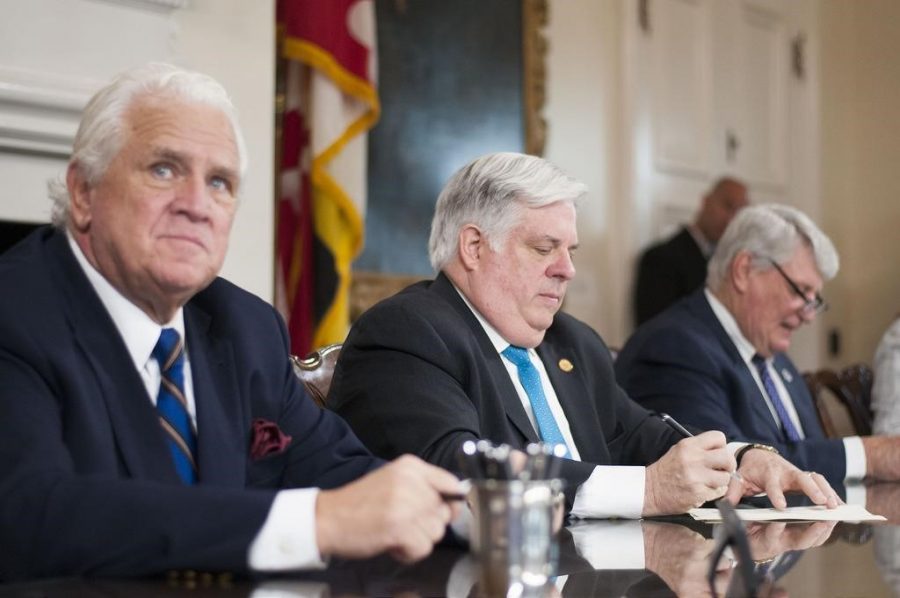New bill lowers college cost
Photos of MD governer Larry Hogan. Hogan signed the new bill for free MD community colleges to be implemented in 2019.
November 20, 2018
Maryland Governor Larry Hogan recently signed into law a bill which makes community colleges in the state of Maryland tuition-free for qualifying residents. The legislation will create a $15 million program to provide scholarships for up to 5,000 students from families that earn less than $125,000 a year. Additionally, single adults earning less than $90,000 a year would also be eligible for the program.
The bill will be implemented starting in 2019 for all eligible students and is one of three plans that the governor has created in order to make college more affordable and accessible for Md. students. All three initiatives total over $386 million within a five-year time span. This plan will be beneficial to many Md. students, including our very own at WCHS.
“I think it’s fantastic that higher education is becoming more affordable and accessible than ever before,” WCHS alumna and Montgomery College freshman Katherine Nation said. “MC is incredibly diverse and is attended by students from almost all levels of economic status.”
Although the passing of this legislation is helpful to many high school and college students, there are certain requirements in order for the program to apply to them.
To qualify, students must enroll in one of Md’s 16 community colleges within two years of finishing high school or obtaining a GED. Students would also have to take 12 credit hours, meaning they can not be part-time students at community college. Lastly, they need to have a minimum high school GPA of 2.3.
“I think this will prompt more students to go to community college as opposed to going into the workforce right after high school because of the financial burden being removed,” Student Member of the Board (SMOB) Ananya Tadikonda said. “I believe this is very important in ensuring students living in poverty are not barred from a college education due to financial status.”
The passing of the bill may encourage more students to stay in-state for college and attend their local community college. In addition, students may also choose to attend and later transfer to another school. Doing so will allow students to save money while still graduating from a high-level university.
“I love the idea of college being free because it helps kids with school and gives them opportunities in life,” senior Helen Cormier said.
Aside from the number of qualifications needed for the program, this bill is a positive step towards making college and university more affordable and eventually free for all students.
“I believe this bill moves forward in bringing equity in opportunity for all students to attend post secondary education,” Tadikonda said.


